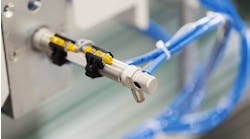Earlier this summer I was doing some yard work in my back yard while two of my next-door neighbors’ boys were playing in their own back yard. All of us were minding our own business, but sometimes the boys’ conversation became a bit loud, so I couldn’t help but notice. I don’t remember the exact context, but one of them became agitated and said something like, “Alright, already! Gee, you sound like a broken record!”
This struck me as a bit amusing, because both of these boys were less than ten years old, so they probably had never even seen a record, much less heard a broken one. I concluded that one of their parents used this term from time to time, and they adopted the term after hearing it frequently.
This isn’t unusual, because most words we all use were just picked up through conversation. We were coached along the way, but no one actually taught us to talk. This is fine for informal conversation. If someone misuses a term, dire consequences generally don’t result. For example, I once heard a broadcaster say, “Her performance was so spellbinding, she literally held the audience in the palm of her hand.” Either the performer had a hand the size of Godzilla’s, or the audience consisted of ants. Of course, the broadcaster meant figuratively, not literally, but I guess she thought literally sounded intelligent.
This shouldn’t be the case in technical fields, such as fluid power. When I attended some of my first classes on fluid power, I learned, for example, that open-loop and closed-loop should be reserved for control configurations. When you intend to refer to the fluid flow of a hydraulic system, closed-circuit refers to a configuration where the fluid continuously circulates between a pump and motor — typically, a hydrostatic drive. In an open-circuit system, fluid from the motor flows to a reservoir. Likewise, proper terminology for a single-rod cylinder identifies one end as the rod end and the other as the cap end — not the rod side or blank side.
Perhaps I’m nit picking — figuratively, of course. However, upon becoming a technical editor years ago, it was drilled into me (figuratively, of course) that we all must speak the same language. Sure, some of the best lessons are learned though experience. But the best way to gain a thorough understanding of a subject is through professional training. After all, think about where you’d be today if all you knew about the birds and bees was what you learned from your grade school buddies.



